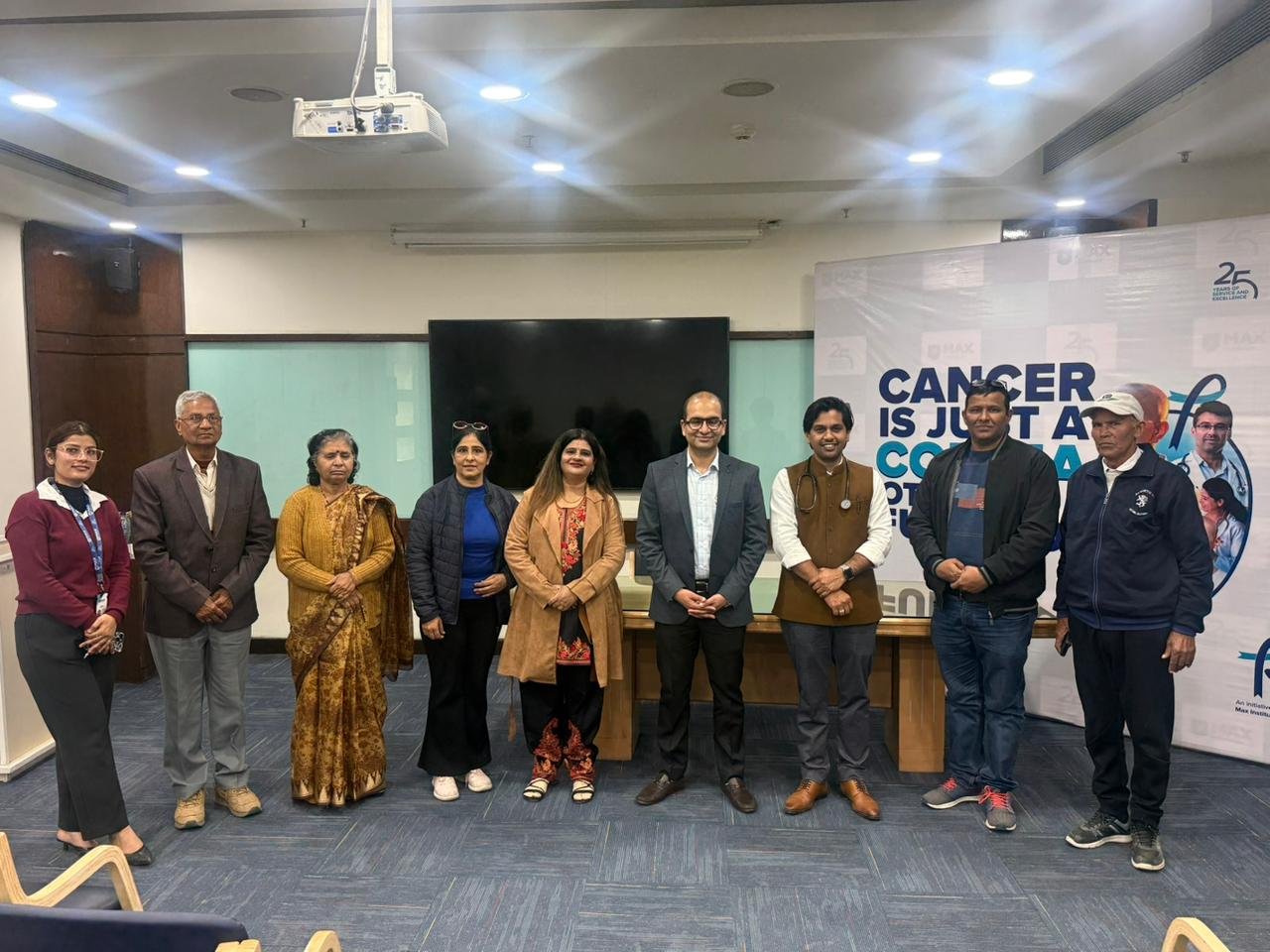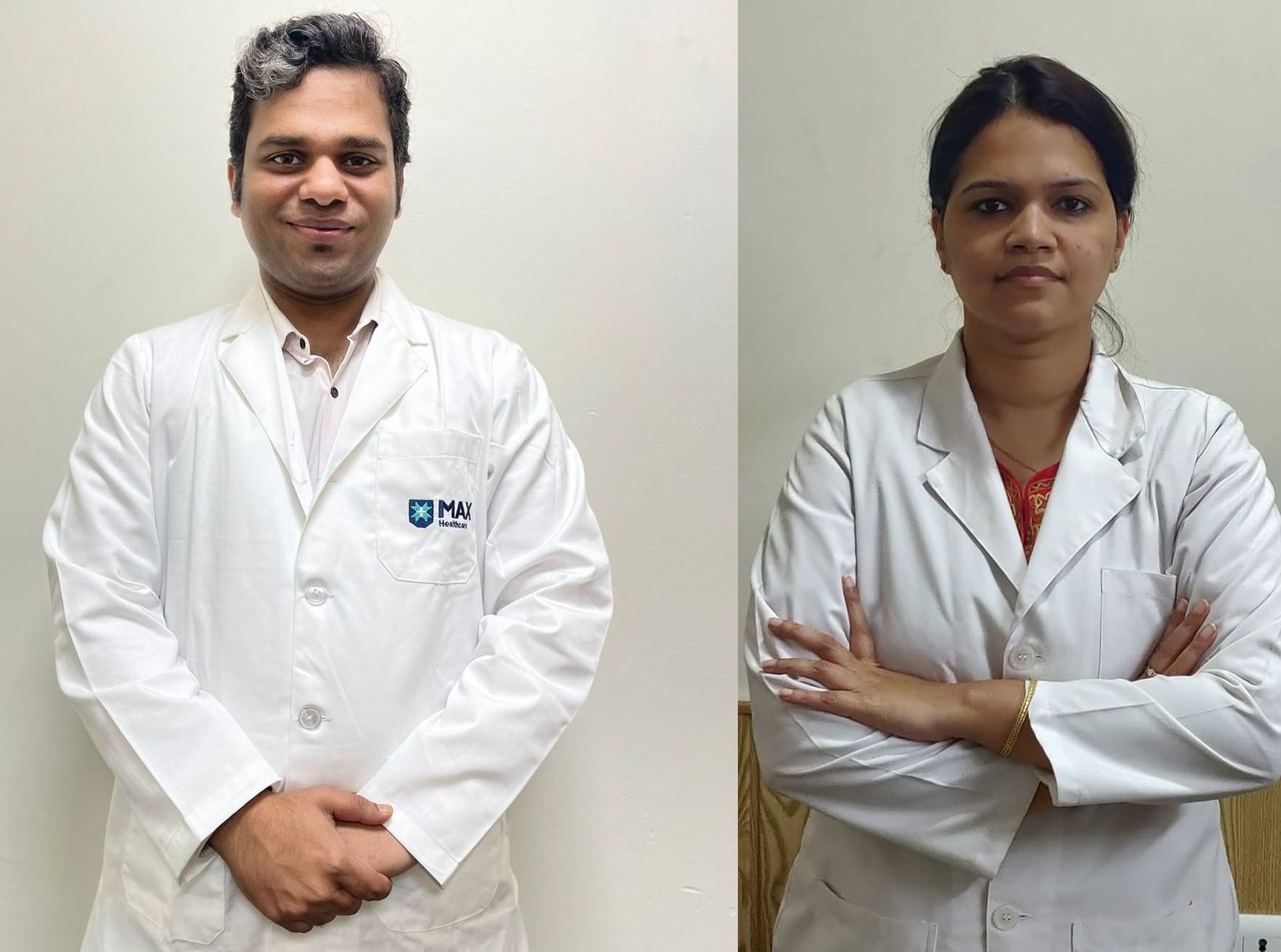Saharanpur : Max Super Specialty Hospital, Dehradun, organised a press conference in Saharanpur to raise awareness about the increased risk of cardiac attacks during winters and the preventive measures required for timely treatment and better outcomes in the presence of Dr. Punish Sadana, Director of Cardiology at Max Hospital Dehradun.
Winters bring specific challenges for heart patients, the risk of heart attacks increases as the cold weather contributes to the tightening of blood vessels, preserving core body temperature to warm and activate the vessels, blood flow increases, putting extra pressure on the heart and raising blood pressure. This elevated blood pressure increases the chances of Heart Attacks.
Further explaining the same, Dr. Punish Sadana, Director, Cardiology, Max Hospital Dehradun, emphasised that, “It is crucial for the heart patients to seek medical attention promptly as early intervention can save lives. Many people are still unaware of the early symptoms of a heart attack. Therefore, it is essential to raise awareness, so that people can consult a cardiologist at the slightest sign of symptoms. The common symptoms of a heart attack include pain or discomfort in the centre or left side of the chest lasting more than a few minutes, pain or discomfort in the neck, back, one or both arms, or shoulders, dizziness or fainting, nausea or vomiting, cold sweat, difficulty breathing, unexplained fatigue, and increased blood pressure.”
Furthermore, Dr. Punish Sadana shed light on the specific factors that contributes to increases risk of heart attacks in winters, he said, “During the sleep body functions slow down, and blood pressure and sugar levels decrease. However, before waking up, the body’s autonomic nervous system works to restore normalcy, which requires extra effort from the heart in cold weather. This added strain can significantly raise the risk of a heart attack, especially those with existing heart conditions.”
Heart failure or cardiovascular disease, in winter increases as people tend to consume more oily and spicy foods, which can increase cholesterol levels, further raising the risk of a heart attack. Effective management of heart conditions includes a combination of lifestyle changes, medicines, and non-invasive treatments. Some simple lifestyle changes include eating a healthy balanced diet, being physically active, exercising regularly, avoiding smoking, and controlling blood cholesterol and sugar levels.
Heart patients should avoid going outside for walks early in the morning when the weather is too cold and to wait for the sunrise before going for a walk. It is also important to avoid drinking excessive amounts of water. Since the heart already works harder to pump blood, drinking too much water could strain the heart even further, increasing the risk of a heart attack. It is crucial to consult a doctor regarding how much and when to drink water. Additionally, adopting a simple and healthy balanced diet while reducing the intake of salt, oil, and spicy foods can help prevent an increase in cholesterol levels.











